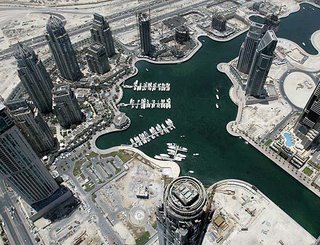 Jumboism of Cities
Jumboism of CitiesF W Boreham’s appreciation of nature’s ‘banquet’ corres-ponded with his scathing comments about the vanda-lisation of nature’s beauty. Mindful of the British experience, he was critical of the spoliation of the countryside due to the “jumboism of cities”,[1] the senseless felling of trees in the name of progress and the emergence of ugliness and pollution due to rapid industrialisation.[2]
War on Beauty
During the Second World War, Boreham asked, “Is Civilisation at war with beauty?” Reflecting on the ravages waged upon the environment, he lamented, “Ugliness is the price we must pay for progress. We made our bargain with Nature and we paid our price”. Boreham recognized the tension between preservation and progress when he wrote that “in our enthusiasm for the new order, we sacrificed too much” but “there is no real reason why the new should perpetuate an outrage on the old. A hurricane of progress need not be a cataract of ugliness”.[3]
Arresting Exit From Eden
Attempting to arrest “the exit from Eden”, Boreham declared that the preservation of nature was a human duty and he named as “culprits” collectors of flowers, agriculturalists who needlessly felled all trees and country councilors who allowed the damage to occur. He called for greater public awareness by attending to the study of nature in schools and an investigation into the relationship between beauty and civilization.[4] Writing in 1947 on ‘The revival of beauty’, Boreham was heartened by “the insistence of the people on the substitution of beauty for ugliness” which was notable in the architecture used in the reconstruction of post-war Europe.[5]
As the Derwent and Gordon River valleys were opening up the scenic state of Tasmania,[6] Boreham said, “From every point of view—scientific, aesthetic, commercial—it is desirable that where novel and magnificent scenery exists, it should be made reasonably accessible to all comers”.[7]
Enlarge Capacity for Beauty
In addition to opening up new scenic tracts and national parks to public view, Boreham wrote of the need to enlarge the human capacity to perceive and appreciate nature’s beauty. In so doing, he observed:
"I never yet walked a pathway that did not sparkle with diamonds. The dustiest track is littered with precious stones. The old road is a wonderfully wealthy place. Its very soil is auriferous. Nuggets are strewn everywhere, and no man can stroll a single mile along its winding way without adding immensely to his shining hoard .… Be sure, if the road leaves me as poor as it found me, it is not because of the road’s incapacity to impart but because of my own incapacity to receive."[8]
Geoff Pound
Image: the ‘jumboism’ of Dubai.
[1] Boreham, Mercury, 13 October 1928.
[2] Boreham, Mercury, 12 June 1926.
[3] Boreham, Mercury, 4 October 1941.
[4] Boreham, Mercury, 12 June 1926.
[5] Boreham, Mercury, 20 December 1947.
[6] Boreham, Mercury, 21 February 1914.
[7] Boreham, Mercury, 11 March 1916.
[8] Boreham, The passing of John Broadbanks, 194.


